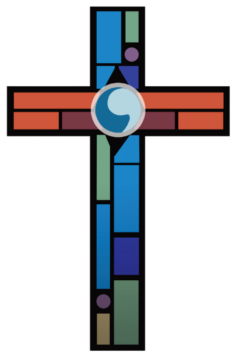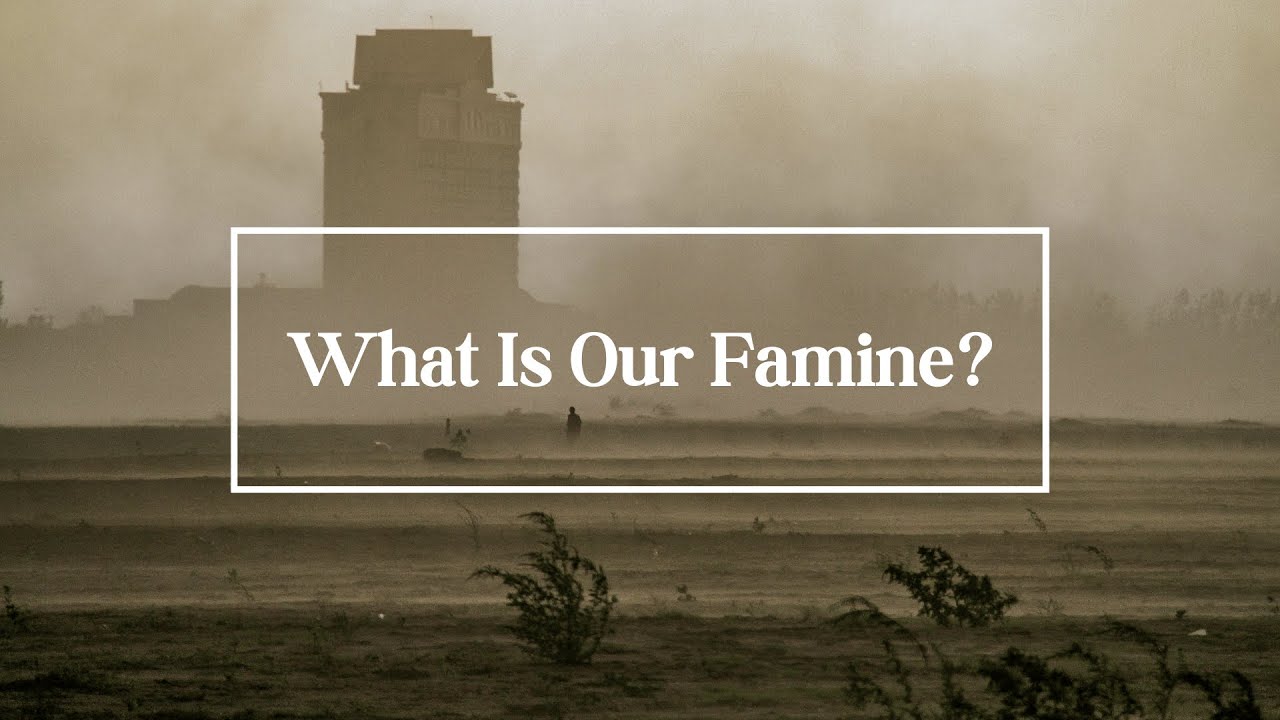Last fall, we affirmed our vision and mission, and one of the pieces of that is environmental advocacy.
We have taken this summer season to focus on some environmental issues, and we have aligned ourselves with the children’s faith formation class that’s meeting in Rader Park. We’re using the scriptures from their curriculum as our guide for this.
Interestingly, that makes July a lot about famine.
It is the theme that runs through most of the scriptures in July. I put this picture up for you, um, to show you where within the world famine exists. The places that are colored blue is where famine exists. You can see that the continent of Africa is not in good shape.
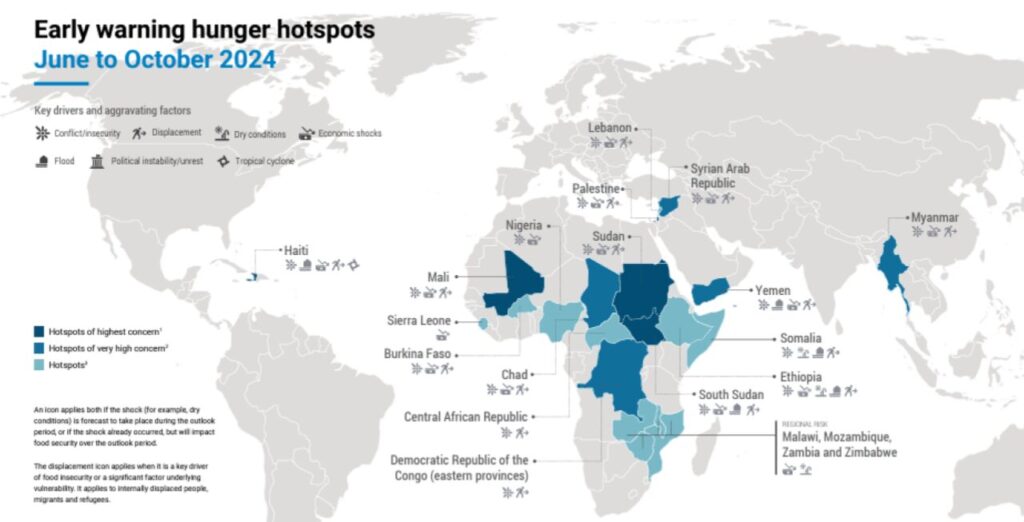
But there are other places, one of those places is Palestine. The number one cause of the famine is conflict. I’m going to say conflict, but it’s more than conflict, right? It’s violence. It’s violence that is hurting people. The second reason is the climate crisis. The third reason for famine is the rising costs of food.
So famine is a shortage of food. Which leaves people literally hungering. That causes people to migrate and that is what plays in to our story for today.
Today, we’re gonna look at Joseph. Joseph is a major character in Genesis. In fact, to read his story starts in chapter 37. It’s chapter 37 then it goes to 39, and it’s 39 to 45. You can read all of that and I’m going to try and tell you that in two minutes. Six chapters in two minutes. How’s that? But Joseph’s story is laden with conflict.
It begins when he’s a young boy and he has this dream that he is going to be great. He is one of twelve children to Jacob, the twelve tribes of Israel. Jacob becomes Israel. His name becomes Israel. They are the twelve tribes of Israel, if that rings a bell with you at all. Joseph, he is also his father’s favorite son. He is the firstborn to his father’s favorite wife. Yes, he had two wives. Remember, we can get way down in the weeds, and I’m gonna try not to go in the weeds today. But he is the favored son.
You may have heard of Joseph and the Technicolor Dreamcoat. That was a musical. Joseph gets an ornamental robe. In the King James version of the Bible, it was described as a coat of many colors, which is where Andrew Lloyd Webber ran with the Technicolor Dreamcoat. But his brothers, all of his brothers envy him and decide they need to get rid of him. They need to be done with this troublesome brother. So, they take him out and they end up selling him into slavery. Interestingly, if you look at the backstory, he’s sold to the Ishmaelites, and I’ll let you track that rabbit trail yourself. But he ends up in Egypt at Potiphar’s house, and that doesn’t go well either, and he ends up in prison.
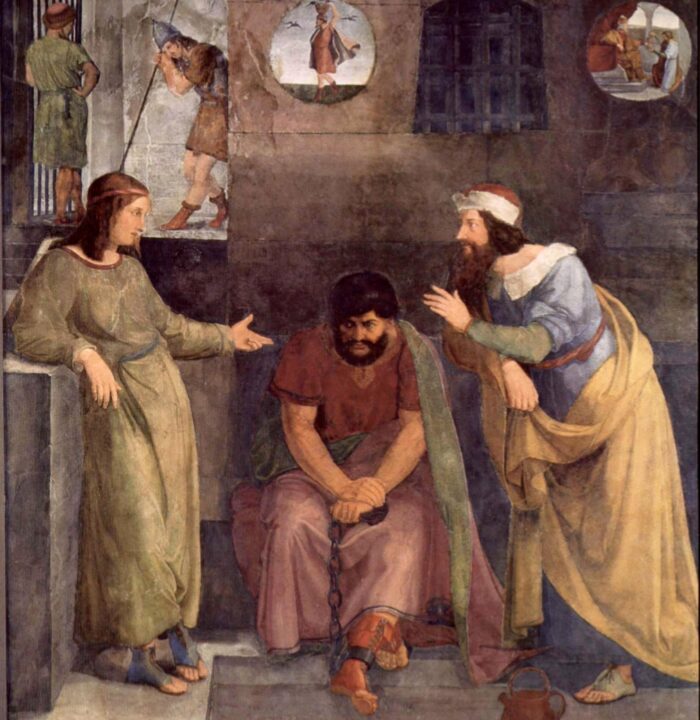
In prison, God continues to be with him. This ability that God has given him to interpret dreams comes in handy. Because they tell the Pharaoh who’s been having these dreams. This is where our scripture that we read today is focused. Where I think we can get caught in the weeds and we can see something amazing about God. When you read this story, it’s especially the scripture we read you can get caught with the lean cows and the dried corn, but what’s really happening if we back out of that detail, what’s really happening there is God is talking to Pharaoh and Pharaoh is listening.
I want you to stop and think about that for a minute. Pharaoh does not worship our God, does not worship the God of Israel, does not worship Joseph’s God. He may have heard of it, but he worships the Egyptian gods. Those are the gods of his people. But suddenly, he’s getting messages from another god. What we would call the one true god, who obviously doesn’t mind, or doesn’t have an issue talking to someone who doesn’t really believe in them, or listen to them, or think about them. That’s the God that we worship. A God who constantly reaches out, even to those who would be in opposition to God’s people.
God chose to talk to Pharaoh, and Pharaoh chose to listen. Think about that. That’s God working in all of that. We haven’t gotten to the Moses story yet, but we’ll hear about how God hardened Pharaoh’s heart. That’s a line from the story, from the Exodus story.
But here, God is softening Pharaoh’s heart because it will put Joseph as second in command of Egypt.
Why is that important? There’s going to be a famine in the land. What’s going to happen? Joseph’s family, the 12 tribes of Israel, are going to come to Egypt because they’re starving and they need food. Joseph is in the right place to help them. So all the conflicts of Joseph’s life, the sibling rivalry and the conflict with Potiphar’s wife that lands him in prison. All of that, God works through all of that to bring Joseph to a place where he can be reconciled, where this family can come back together and be God’s people. That’s how I want you to look at the story.
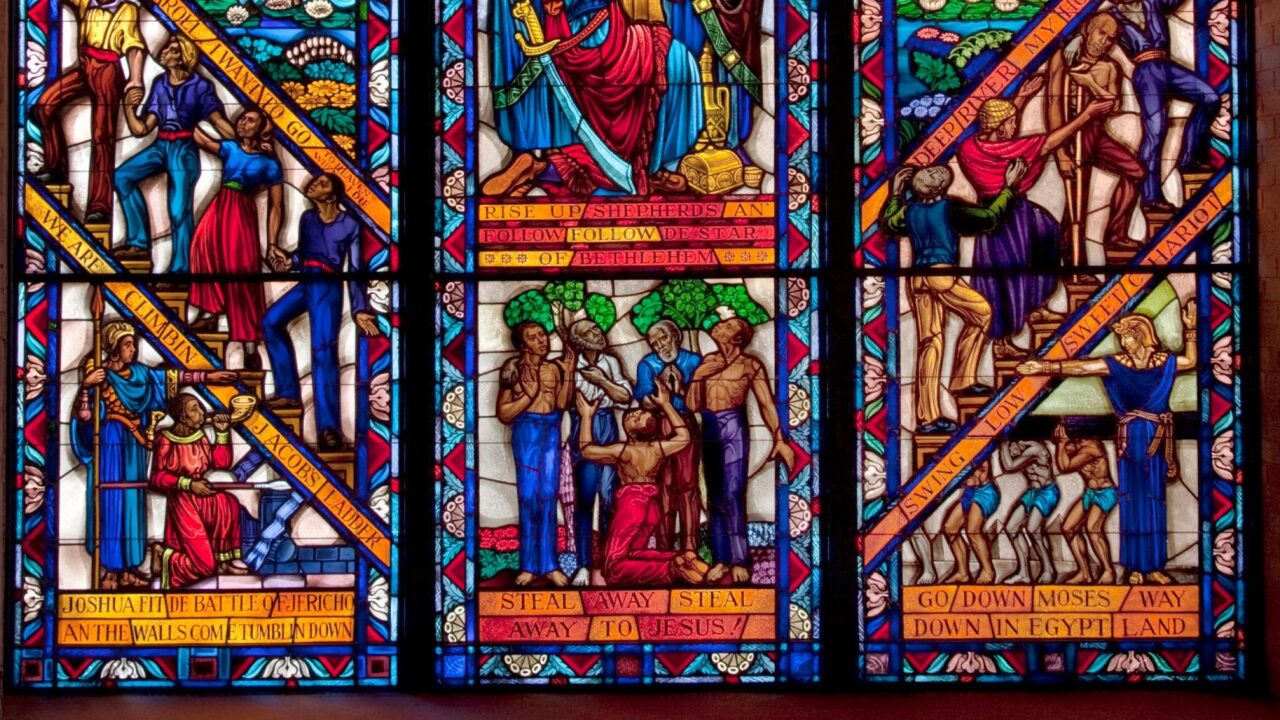
I had a very hard time finding a picture of Pharaoh. I use the Vanderbilt Christian library and they’ve got thousands of pictures, but not of Pharaoh. Pharaoh is the character in the right bottom corner. This is a picture from the Tuskegee Chapel that was done by the lambs. It’s their singing window and the majority of the characters are African, and it has words of the spirituals on there.
But, I can’t emphasize enough, I want us to think about what that says about who our God is.
That Pharaoh was so moved by God and these dreams that he ignored the ethnicities. He ignored the fact that Joseph was an Israelite. He ignored the different religions, that he didn’t follow the Egyptian gods. He ignored the social classes, because Joseph was a slave. In fact, when Pharaoh chooses him, Joseph is in prison accused of rape. How many people in prison accused of rape would get exonerated and made second in command of a country? Just think about that. We’re talking about a major shift that God brought about for God’s purposes.
Joseph’s interpretation really was not really all that remarkable. In your abundant years, save it. Because there’s going to be lean years. That’s just good economic wisdom, right? Yet, it reminds the people to have a longer vision. Don’t just worry about today and what feels good for today and waste, but look at the longer vision.
Our church is going through lean years and we are trying to take that longer vision.
We’re relying on the abundance that has been part of our heritage. Literally, we say we’re standing on the shoulders of the saints who came before us and their generosity. Because we are in lean years right now. You can be part of making that sustainable through your sustaining gifts. You can be part of continuing that ministry. A ministry of reconciliation within our community, within those whose lives we touch. In ways that we support and advocate for God’s creation. In ways that we welcome all people as children of God and offer inclusive refuge.
So, I have a hard question for you to consider. When, like Pharaoh, do we let go of our need to be right? To be in charge and listen to the wisdom of the one that we perceive as less than us. Because that’s where God’s working through. God’s working through the children, through the youth, through those who have not walked through the doors yet.
I’m also wondering, what are the famines of our lives? For what are you hungry? What are you starving for? What are the situations that can lead us to listen to the wisdom of another?
When we wrote The Mission and Vision, these statements came with the core values. We believe that God’s love is stronger than fear. We value social justice and inclusion. We are called to care for our environment as God’s creation. May these be words of wisdom for us. May they encourage our faith in God who loves and works in the world in ways that we do not understand, and with people that may surprise us.
